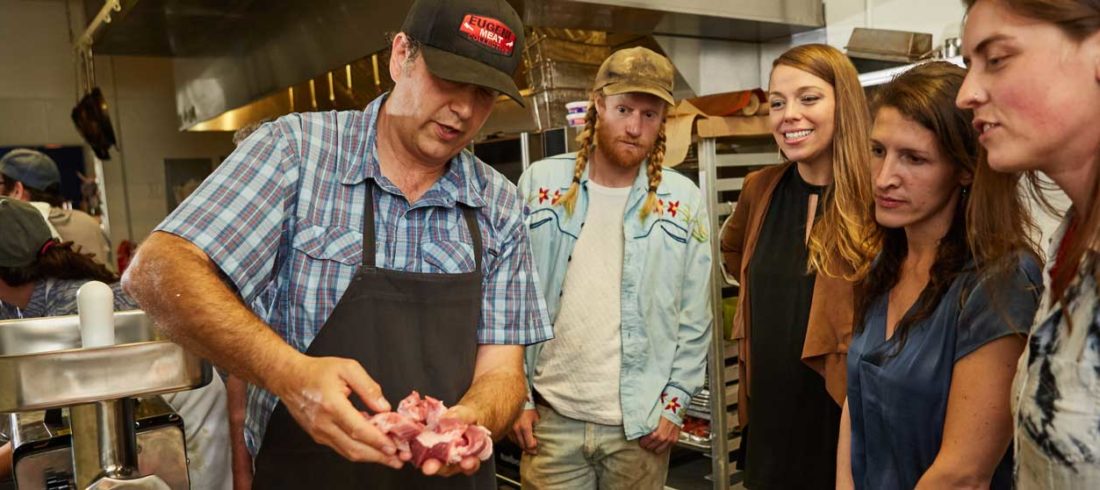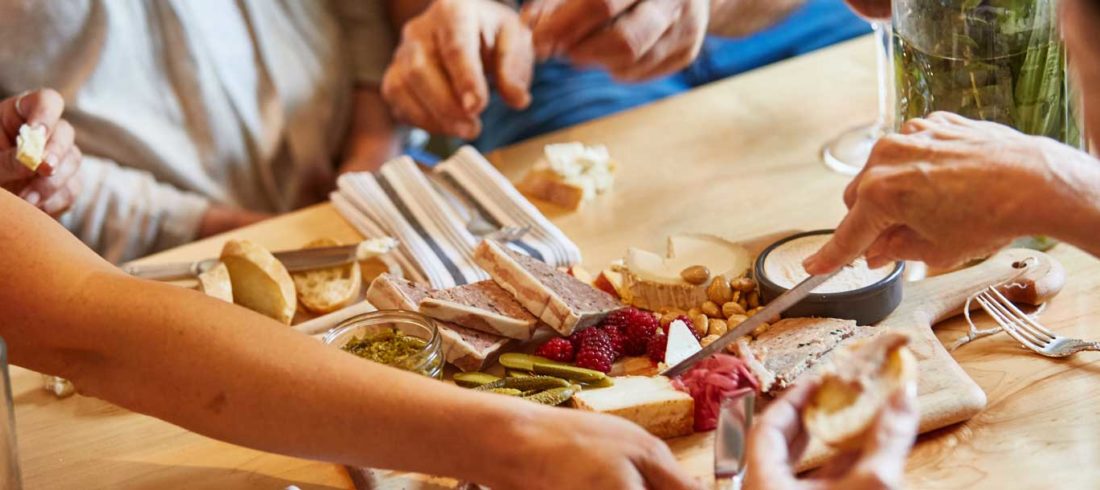Jonathan Tepperman used to struggle with eating factory-farmed animals. Eating the mass-produced meat from mistreated animals that are force-fed unnatural diets left him feeling morally and physically compromised. As Sir Paul McCartney says, “If slaughterhouses had glass walls, everyone would be vegetarian.”
But after attempting to go vegetarian, he felt tugged back to animal proteins. There had to be another method to raise animals in a sustainable and meaningful way. So he began his journey. “The next thing I knew, I was hanging out in a friend’s driveway, cutting up a freshly butchered pig, grilling samples, and drinking beers with the farmer while my 3-year-old marveled at the pig’s head,” Tepperman says.
In the wake of the big housing bubble collapse in 2008, Tepperman started educating himself on bushcrafting (wilderness survival skills), starting with processing game animals and working with urban homesteaders.
Tepperman decided that our connection with food should be about knowing the animal we’re eating. Cultivating curiosity about the sources of our food or who produced it makes the relationship meaningful. “This is how we have related to meat as a species for the vast majority of our existence,” he says.

Through a mutual friend, Tepperman met the creator of the first meat collective in Portland, Camas Davis. After attending his first event, he knew he had to create something similar in Eugene. Through collaborations with other meat collectives, local farmers, butchers, and a community of people who support sustainable farming, the Eugene Meat Collective was born.
The Eugene Meat Collective is a mobile butchery school that helps consumers obtain whole animals directly from local small farms and teaches them how to use the whole animal in different forms. “It is often overwhelming for people to research all the details that go into raising sustainable meat and then find local sources,” says Tepperman.
The benefits of a traveling butchery school include interacting with different populations and building a strong and more diverse community. “As a mobile school we are able to highlight local restaurants and food venues that support local sustainable meat,” Tepperman adds.

The Eugene Meat Collective has held classes at several locations, such as Springfield’s Sprout! kitchen, the Party Downtown restaurant, Carte Blanche Catering, and private residences. The collective has also worked with local farmers and vendors, including the Oregon Wine Lab, Organic Redneck Farm, Laughing Stock Farm, and Deck Family Farm.
Past classes have featured lamb, pig, and deer butchering as well as sausage, pâté, and charcuterie making, and they are typically four to six hours long. Classes are usually capped at 12 students to maximize student-to-instructor ratios and individual practice time. “Our classes focus on hands-on skills so that the students walk away with the confidence to butcher their own meats, to cook and preserve them,” says Tepperman. “In our butchering classes, students learn about all the parts of the animal and what to do with them.”
Once the class is complete, a sumptuous spread is presented in the dining area of the restaurant or venue where the class was held. This allows students to sit down as a community and enjoy their freshly cooked meal with local wines, produce, and samples of the procured meat.
Tepperman also offers classes in ethical hunting, which entails knowing the laws and learning the skills to effectively harvest a wild animal. He collaborates with the Whole Earth Nature School to teach adult wilderness self-reliance as well. “I am able to share my knowledge with people who want to learn these human skills, completing the circle of interest in my life,” he says.
In the future, Tepperman plans to include these features in a podcast covering how to create a meaningful life and maintainable future. His aim is to have a dozen fully produced podcasts, called “The ReEvolution,” by December. “Our goal is to continue to expand our repertoire of classes and offer more of them,” Tepperman says. “We want to add duck, rabbit, beef, and fish butchering classes as well as increase the amount of other classes, such as pig, lamb, and chicken butchering, pâté, sausage, and charcuterie.”
Tepperman will also be adding clamming and deer butchering to his class offerings and is planning to cover everything from fishing and hunting waterfowl to hunting and cooking wild game, such as deer, elk, turkey, and bear.
May all you meats be local, healthy and tasty.


